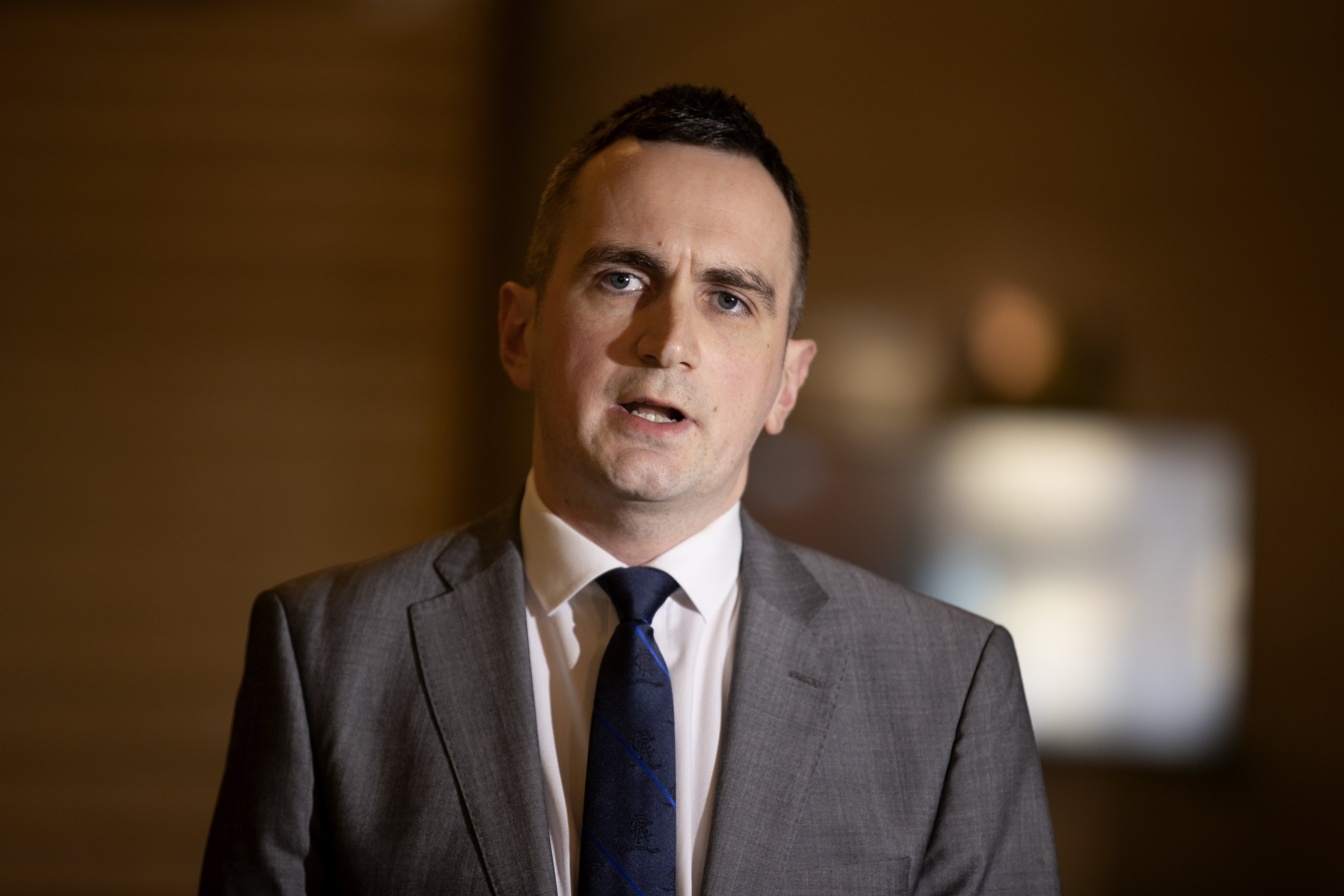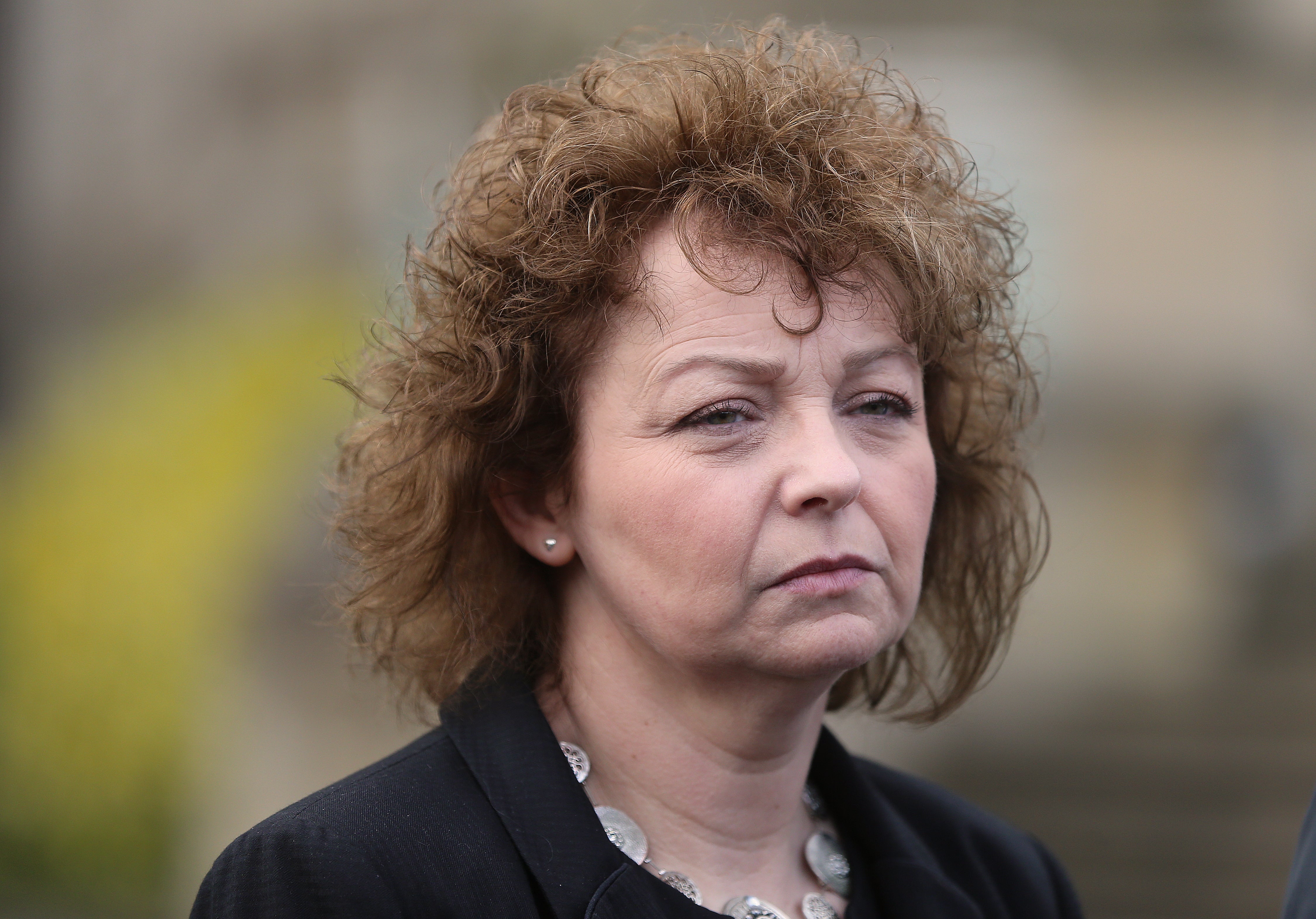
The crisis in Ukraine will inevitably lead to an increase in the cost of energy, Stormont’s economy minister has said.
Gordon Lyons told the Assembly the situation demonstrated why Northern Ireland needed to move towards creating as much of its own energy as possible, and end its dependence on fossil fuels.
At ministerial question time at Stormont, the minister was asked about the rising costs of energy and the Path to Net Zero Energy strategy which he launched earlier this year.
DUP MLA Stephen Dunne asked: “Clearly events between Russia and Ukraine could have an impact on energy markets, including the German Chancellor’s decision to pull the plug on the Nord Stream 2 gas pipeline project.
“How concerned is the minister that these events could cause further pain to local energy users here?”
We don't depend overly heavily on Russian gas, our supplies come from elsewhere, but it will have an impact on world markets
Mr Lyons said: “The news over the last couple of days in terms of Ukraine and also the news from the German chancellor today will inevitably lead to an increase in the cost of energy in the UK.
“We don’t depend overly heavily on Russian gas, our supplies come from elsewhere, but it will have an impact on world markets.
“That is why I put into the energy strategy a focus on where we can, create as much of our own energy as possible and I think that is where we need to see further investment because the longer we are reliant on fossil fuels, the longer we will be dependent upon the volatility which comes with fossil fuels.
“In particular I think we are well placed in Northern Ireland to take advantage of hydrogen and the opportunities hydrogen will bring for our economy.”

Mr Lyons said his strategy was aimed at developing policies and interventions to achieve affordable and stable energy prices.
He said: “This will require reducing our reliance on fossil fuels, the prices of which are inherently volatile and driven by factors outside of our control, improving the energy efficiency of our buildings to reduce the amount of energy that we use, including setting clear targets, standards and regulations as well as providing clear support to consumers and maximising the use of indigenous renewable resources to reduce the amount of carbon taxes that consumers pay on their energy bills.
“The energy strategy takes into account the impact of the recent increase in energy prices and the impact they are having on our citizens with a focus on the measures that assist vulnerable consumers.
“These include establishing a one-stop shop to provide information, advice and support to consumers as well as establishing a cross-departmental steering group led by the department for communities to develop and deliver actions to address fuel poverty.”

Sinn Fein MLA Caral Ni Chuilin asked: “What money is your department bringing forward, for example in terms of retro-fitting which will hopefully reduce the bills that people face in their homes?”
Mr Lyons said: “I want to make sure that we put the support where it can be most useful and that is why I want to make sure we are putting our efforts in terms of energy efficiency because the cheapest form of electricity is the one you don’t use.”







